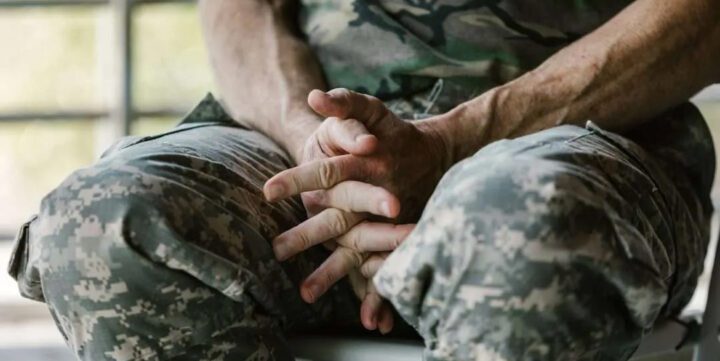Royal Commission into Defence and Veteran Suicide Released
November 25, 2024
Civilian Life and Healthcare Challenges
Transitioning from a life of service to civilian life is a formidable journey for many defence members, one that calls for robust support systems—especially in healthcare. Veterans transitioning into civilian life often face a unique set of healthcare challenges that can complicate their reintegration. There are deep research roots in the presence of post-traumatic stress disorder (PTSD), depression, chronic pain, and physical injuries sustained during service, but rarely do these indicate where the system is failing veterans. Mental health conditions are particularly prevalent, often exacerbated by the sudden loss of the structured military environment and a sense of identity rooted in service. In addition, veterans frequently experience heightened anxiety and sleep disorders, which can lead to substance misuse as a coping mechanism. These health complications present barriers to forming social connections and adapting to civilian routines, highlighting the need for targeted, veteran-informed healthcare solutions.
The recent Royal Commission into Defence and Veteran Suicide highlights several systemic gaps in our healthcare response to veterans’ needs. These issues underscore the urgency of creating targeted, transitional healthcare programs for veterans, programs that go beyond traditional support services to ensure long-term health and well-being.
The following chapters represent the recommendations which came with the Final Report in hopes that adopting these changes and innovations will help veterans and civilians alike in building stronger, unified healthcare systems.
Ending the “Code of Silence”
The report sheds light on a prevailing “code of silence” within the ADF, where reaching out for help or expressing vulnerability is often seen as a weakness. This cultural aspect is ingrained during service, creating a significant barrier to effective mental health support once members leave the military. Breaking down these barriers in civilian healthcare settings will be crucial. ADF members must know that seeking help for mental health concerns is not only acceptable but encouraged. Civilian healthcare providers could play a role by fostering open dialogue and reassurance around mental health, ensuring that veterans do not carry this stigma into their civilian lives.
One potential solution suggested in the Final Report is to establish veteran-specific mental health clinics where former service members can seek support in an environment that feels familiar and is informed by military culture. Having professionals trained in the nuances of military life would foster comfort, helping break the ingrained silence that hinders many from seeking assistance. Would this in fact create the safe space intended or continue to segregate groups further?
Cultural Differences in Healthcare
The report highlights a concerning reality: the characteristics that once strengthened defence members can become risk factors in civilian life. Qualities such as stoicism, self-reliance, and emotional suppression, which are valuable during military service, often inhibit veterans from seeking help in civilian settings. From a healthcare perspective, providers need to be aware of these traits to avoid misinterpretations or misdiagnoses. Healthcare professionals should be trained to understand these service-related habits, to create strategies that make veterans feel seen, understood, and respected.
In civilian healthcare settings, this could mean adopting a trauma-informed approach that values a veteran’s background while also encouraging them to seek help and embrace vulnerability. This approach requires that health professionals receive ongoing training in understanding military experiences and the psychological barriers veterans may face when discussing their health — something the report promotes funding of through our government and healthcare systems alike.
Data Sharing and Collaborative Healthcare Approaches
Currently, defence and veteran healthcare data is siloed, limiting opportunities for holistic, evidence-based care. The report emphasises the need for a centralised data system, allowing military and civilian healthcare providers to track and understand veterans’ mental health histories. A centralised, integrated health record system could provide continuity of care, ensuring that veterans do not have to constantly retell their histories, which can be retraumatising.
For example, if a veteran presents with post-traumatic stress disorder (PTSD) or chronic pain related to service, a centralised record would ensure their civilian provider has a comprehensive understanding of their history, previous treatments, and potential triggers. Such a system would promote informed, proactive care that anticipates health needs rather than reacting to crises.
Specialised Transition Programs
The transition from military to civilian life is one of the most challenging phases for ADF personnel, with many feeling a profound sense of loss and disconnection. Specialised mental health programs are vital during this phase, as veterans navigate the shift away from their strong military identity to a world that can feel alien and disorienting. The report highlights the need for programs that bridge this cultural divide, providing a safe and supportive environment for veterans to explore their new identities and heal.
Programs designed specifically for veterans — like trauma-informed group therapy, peer support networks, and resilience training — can help ease the psychological strain of reintegration. Peer support, in particular, has shown success in helping veterans feel understood and less isolated, offering connections to those who have experienced similar journeys.
Civilian healthcare systems are often unprepared to handle the specific traumas associated with military service. Veterans may experience unique mental health challenges related to their service, such as combat-induced PTSD or moral injuries. Civilian healthcare providers must develop a foundational understanding of military trauma to provide empathetic, informed care. Integrating military trauma education into healthcare training programs is essential. Healthcare providers who can recognize and understand the complexities of military trauma are better equipped to support veterans in meaningful ways, offering care that feels safe, respectful, and validating.
The Future is Brighter
Education about the struggles veterans face is the first and most essential step in providing them with accurate, compassionate, and effective care. Just as with other marginalised groups, understanding the unique challenges veterans encounter can help healthcare providers deliver informed, empathetic support that addresses both visible and hidden scars of service. By increasing awareness, healthcare professionals can bridge the gap between veterans’ needs and the services they receive, ultimately reducing barriers to care and promoting better health outcomes.
The recommendations from the Final Reportguide us in this direction, advocating for a healthcare system that recognises veterans’ experiences, respects their resilience, and delivers care that is not only responsive but transformative for individuals at high risk. This commitment to education and understanding will ensure that veterans receive the high-quality, personalised care they deserve as they navigate life beyond service.
The full report and additional resources can be found here – https://defenceveteransuicide.royalcommission.gov.au/publications/final-report












